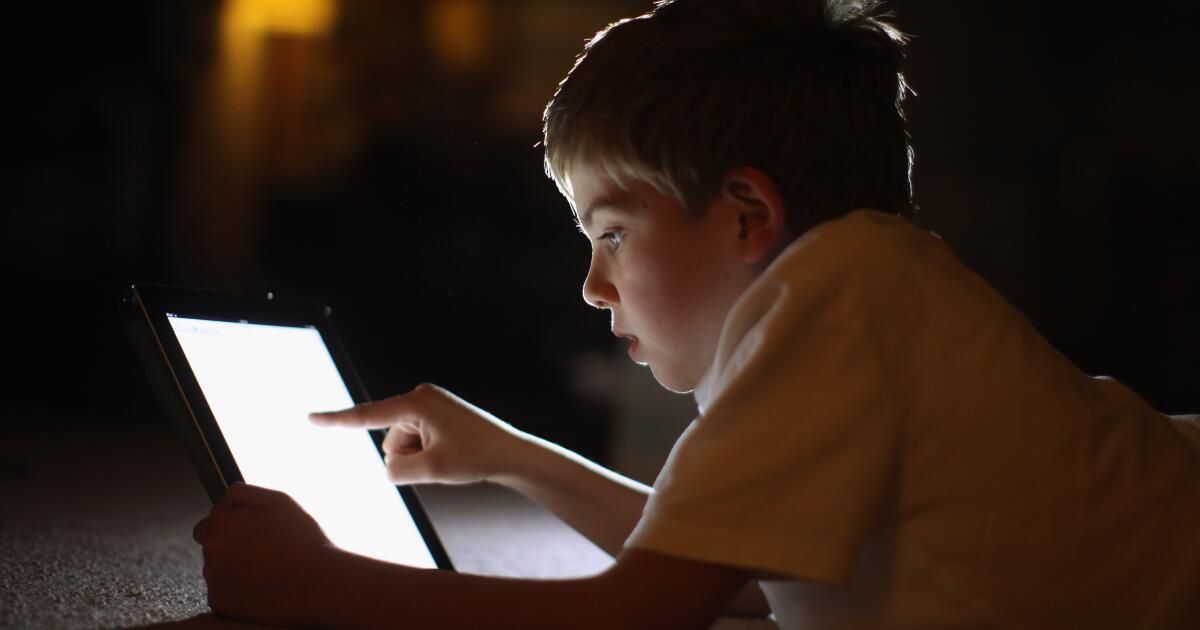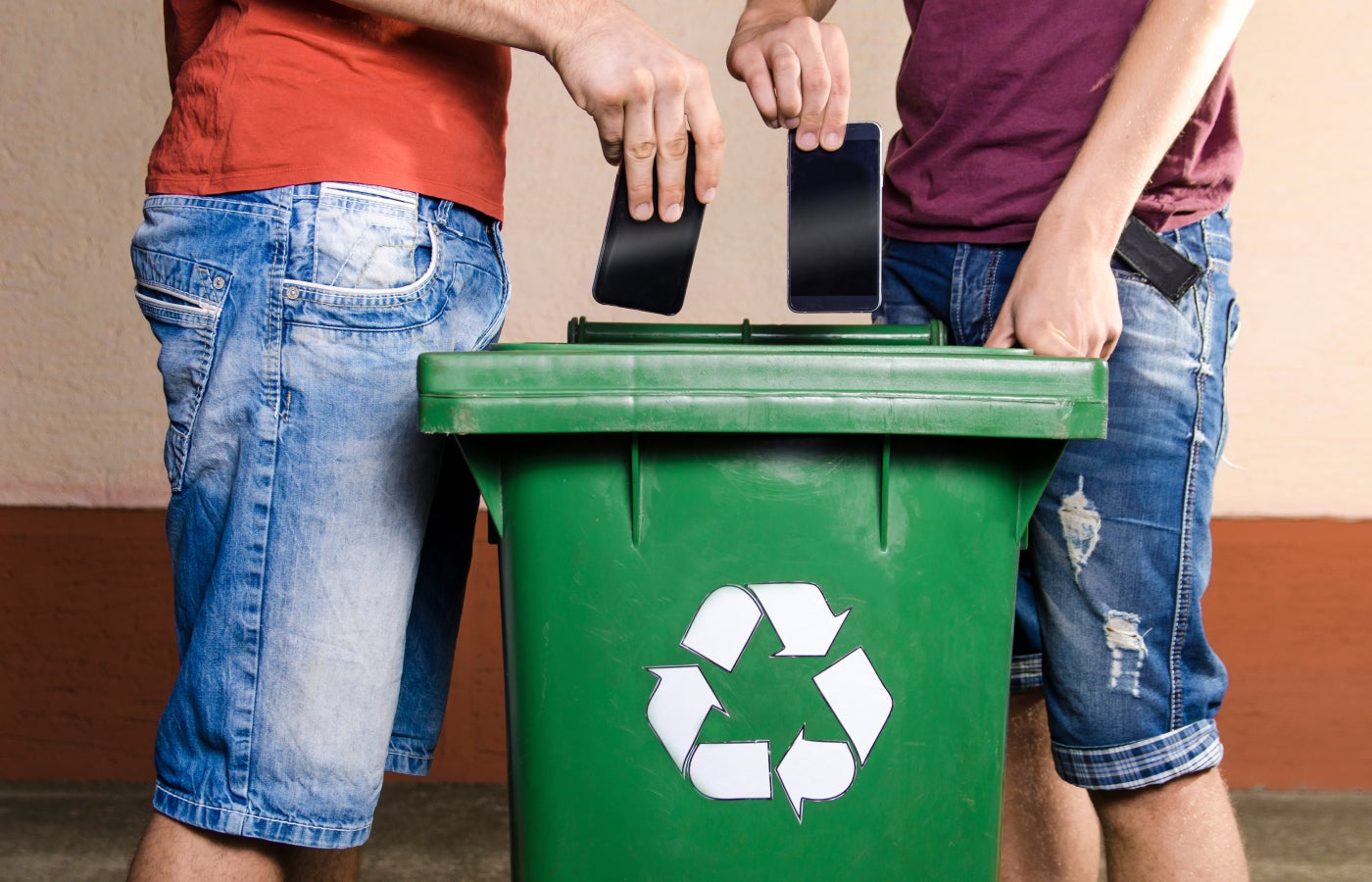This time of year, almost every morning before dawn, my two-and-a-half-year-old son wakes up, calls me into his room, and looks into my cloudy eyes to ask, “Watch baseball?” He wants to watch the highlights of yesterday's games before going to daycare. After school, he likes to have a quesadilla at a place where we can watch superheroes Mookie Betts, Kiké Hernández and his idol Shohei Ohtani perform miracles on the field.
My little boy is a total baseball fan, and now that the Dodgers are back in the World Series, I've been wondering if letting him watch those long games on screens will wither his brain, like so many parenting TikToks say.
I know those are not good sources, so I contacted experts.
First up: Emily Oster, the economist-turned-parenting expert whose advice is based on data. Your books and your site, ParentData, provided clarity on many issues before and after my son's arrival. Could you tell me if watching sports counts as bad screen time?
“I don't support thinking that screen time is good or bad; it's an unhelpful framework for most parents,” Oster said, deflating my theory a bit. “Instead, we want to think about screen time in the framework of opportunity cost: What would my son be doing apart from this?”
She says caregivers need to be aware of whether screen time interferes with social activities, rest or other developmental needs: “If your child watches nine hours of 'Cocomelon' a day, they don't have time for other things: eating, sleeping and going to school. And that's a problem. But an hour of TV while you're making dinner? It's a good way for everyone to get a break.”
The American Academy of Pediatrics recommends no screen time from birth to age 2, except for video calls with family and friends, and no more than one hour daily from ages 2 to 5.
Dr. Marian Williams, of the Early Childhood Mental Health Program at Children's Hospital LA, has a different approach. Scrolling devices like phones and tablets are the worrying type of screen time: “something the child can do on their own, become hypnotized, and have a hard time separating themselves from.”
Television, on the other hand, can be communal with the help of parents. “What happens on the screen is important, but what happens in the room might be more important,” Williams says. My son could be a case study. I applaud every time Betts slides headfirst into a base, so now every time my son falls, he softly says “saaaafe,” like he's trying to convince the umpire that his steal was legitimate.
This active experience is what differentiates TV co-viewing from passive viewing, says Tracy Elizabeth, a developmental psychologist and technology leader who led TikTok's development health and family safety team. When we are together, he says, my son is not only watching Teoscar Hernández hit home runs; He's actually looking at me. “He's learning about you and how to have a relationship with his family,” Elizabeth says. My son still talks about the time Ohtani was hit twice by a Padres pitcher in the same game. “Ohtani was hit too,” he says every time I explain why he shouldn't hit me in the face with a spatula.
While co-viewing helps frame young children's experiences, many experts agree that not all on-screen content contains teachable moments. Commercials could be a real threat to young viewers, in part because they have a pace that captures and holds our attention, according to Dr. Jane Tavyev Asher, director of child neurology at Cedars-Sinai. “A young child's brain will be attracted to that fast movement,” he said, “which will cause unwanted wires to be laid in their brain that are developing very quickly.” Fortunately, it's pretty easy to mute or disable ads.
By contrast, baseball moves slowly and deliberately. The pace of baseball might actually be helping to generate attention, some of the experts said.
Regardless of official recommendations, parents know that spending special time with your toddler is an important consideration. At least one expert backed me up on that: “For parents, learning when to break the rules is important,” Williams said. “And when your local team plays in the World Series, that's one of those moments.”
So when the next game of the Series was about to begin, I had a decision to make.
“It's time to play Dodger baseball,” I told my son in my best Vin Scully voice. I was sure a little baseball wouldn't turn his brain into guacamole and I had a plan for how we would interact. After all, he is watching me, and I can hang out with my best friend and make stupid jokes. So we settled on the couch and watched Ohtani and the gang take to the field. And my son was enthralled.
We texted videos to my Blue Jays-loving brother's family in Toronto. I muted the commercials. We talked and pretended to play baseball together. And it was amazing. I probably made the right decision and who knows: maybe this moment would be a game-changer for my son's brain development.
And it turns out that it was really just a moment. After 30 minutes, he turned to me and asked, “Can we watch 'Daniel Tiger'?”
Drew Tewksbury is a writer and editor in Los Angeles. He's writing a book about expert advice on how to be a better parent.











